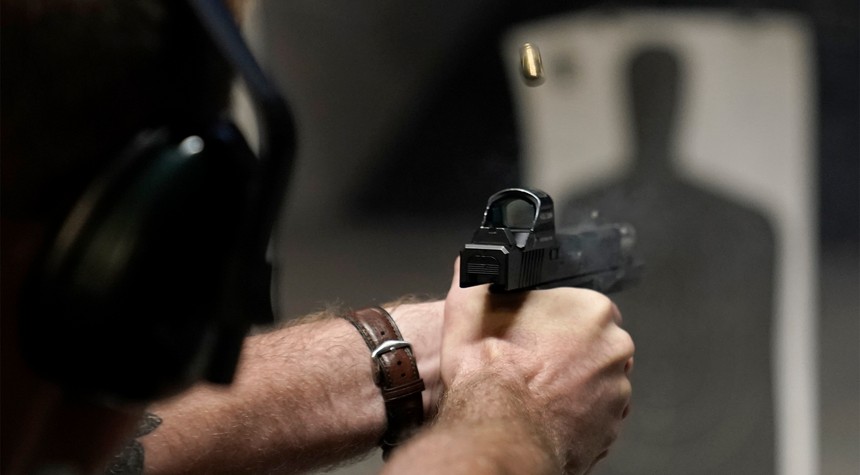NRA addresses its opposition to “safe storage” laws

The other part, at least for me, is that it doesn’t take any individual aspects into account. It’s a blanket law that applies to everyone just the same, then often punishes people who are already reeling from the ramifications of whatever act told the authorities the gun wasn’t secured in the first place.
The NRA has to deal with this a lot. The organization has opposed these laws as well, then gets headlines saying they’re anti-safety.
At America’s 1st Freedom, managing editor Mel Dixon addresses this.
Despite all the work the NRA does to promote safe and responsible gun ownership, you’ll often see dramatic headlines accusing the NRA of being against safety—especially when the NRA-ILA files lawsuits against one-size-fits-all gun-storage laws.
“What gun safety? NRA using lawsuits to shoot down local gun-storage laws,” screeched one Salon headline.
“If the NRA [wants] to be on record fighting responsible gun ownership, that’s their choice,” said Seattle’s city attorney, Pete Holmes, after the NRA filed a lawsuit against that city for trying to pre-empt the state’s gun laws with its own mandatory-storage laws.
This kind of spin of the NRA’s positions regarding mandatory firearms storage laws is rampant. Gun-control organizations like Everytown for Gun Safety advocate that gun owners keep their guns “locked, unloaded and separate from ammunition.” And, indeed, even the NRA agrees on that method of storage when it comes to guns not currently in use. So, someone who doesn’t follow this issue might ask: Why does the NRA file legal challenges to so-called “safe-storage” laws?
The reason begins with the fact that these laws are often unconstitutional infringements on the Second Amendment of the U.S. Bill of Rights; after all, if you must keep all your guns unloaded and locked away, then you will have no ability to use one to defend yourself if a criminal comes for you. Defensive gun uses—by even the most-conservative estimates—are four to five times more common than crimes involving guns. Guns are most often owned for self-defense rather than sporting purposes, and a self-defense gun is always in use.
Exactly.
Dixon goes on to note that a gun that’s not in your control should be locked up.
I’m sure she’d agree that the issue is and has always been about mandating the storage of firearms without regard to literally any other factor. It’s in punishing people for not conforming to what the state requires as opposed to what their own lives require.
Many of these laws require a gun to be locked up pretty much at all times it’s not physically on your person. New Jersey attempted to mandate people needing two safes, one for the gun and one for the ammunition so that you would have to access two different storage devices during a high-stress event.
As such, these laws make it difficult to access a firearm during something like a burglary. That means people may be unable to access the gun a mandatory storage law required them to lock up at the very moment they need it.
Honestly, for all the pontification about opposing safety by the anti-gun side, I’m curious why they’re not pushing harder for tax credits for buying gun safes in states and even federally. Several states passed them with bipartisan support, including from gun rights groups and gun control organizations. Why not push for those in all 50 states and in the halls of Congress?
Making it easier for people to obtain a safe also makes it more likely that some will actually use it yet don’t try a one-size-fits-all, top-down approach to things.
Then again, when you’re more worried about control than safety, why would you think about that?